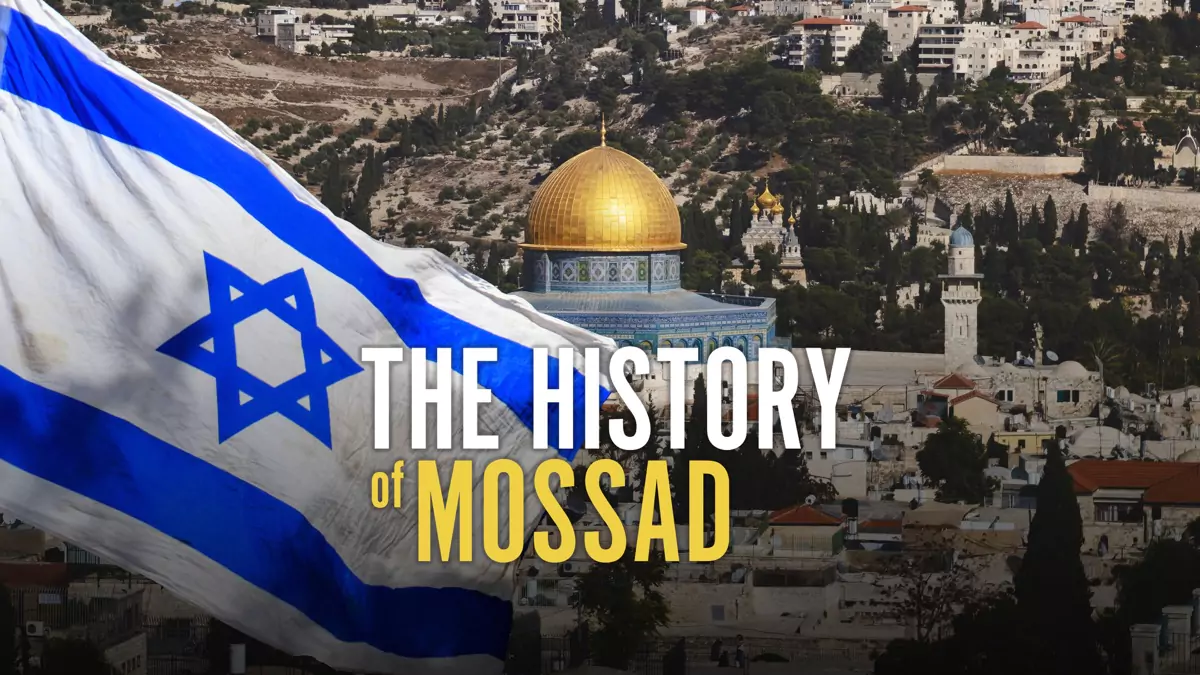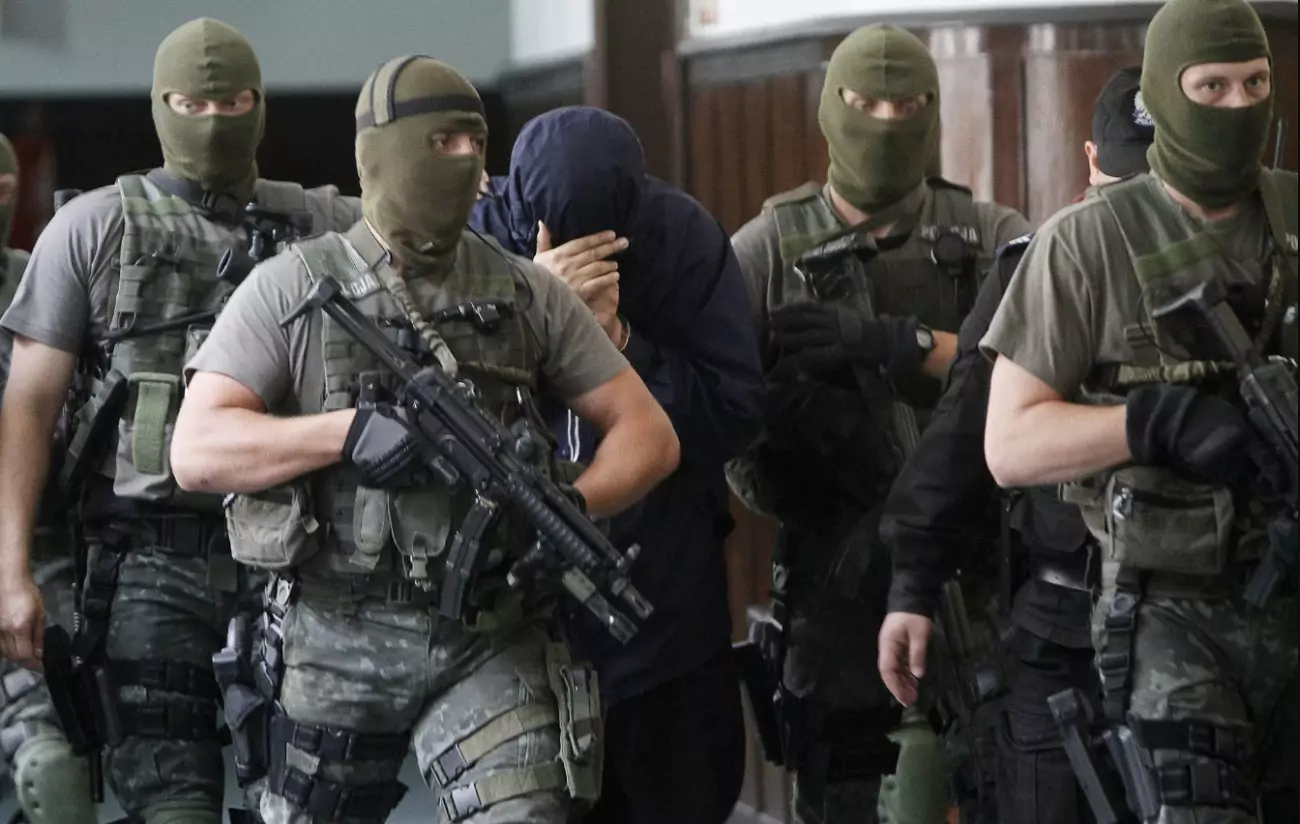By Giostanovlatto, Founder Bali Today
To understand the Mossad is to understand that in the high-stakes game of global intelligence, perception is not just reality—it is a strategic asset, a weapon, and a shield all at once. For decades, the very name—an acronym for HaMossad leModi’in uleTafkidim Meyuchadim, The Institute for Intelligence and Special Operations—has evoked a specific set of images: shadowy figures executing flawless operations, impossible heists of state secrets, and a reach that seems to extend into every corner of the globe.
This is not merely a series of successful missions; it is a meticulously cultivated legend. The Mossad’s reputation is its most potent tool, a psychological fortress built brick by brick through a combination of ruthless efficiency, technological brilliance, and masterful narrative control.
For a global audience watching from the relative peace of Bali, dissecting this phenomenon is not about indulging in spy thrillers; it is about understanding a fundamental driver of modern geopolitics.

1. The Foundation: A Mandate Forged in Necessity
To comprehend the Mossad’s ethos, one must first appreciate its birthplace. Established in 1949, in the fragile infancy of a nation surrounded by openly hostile neighbors, the agency was not created for subtle influence or political gamesmanship.
It was built for survival. Its founding principle, drawn from the lessons of the Holocaust and the War of Independence, was starkly simple: Never Again. This existential imperative created an organizational DNA fundamentally different from the CIA or MI6.
While those agencies often operate to project power and protect global interests, the Mossad operates from a place of existential deterrence. Its mission—intelligence collection, covert operations, and counter-terrorism outside Israel’s borders—is not a function of statecraft but a prerequisite for the state’s continued existence.
This foundational urgency is codified in its structure. The Director of the Mossad reports directly to the Prime Minister. This is not a trivial detail of bureaucracy; it is the bedrock of its operational philosophy.
This short, uncompromised chain of command surgically removes the layers of committee reviews and political hedging that slow other agencies. It allows for decisions of immense consequence to be made with breathtaking speed. In the world of intelligence, where a single hour can mean the difference between preventing an attack and mourning its victims, this agility is the ultimate force multiplier.
It is the first and most critical pillar supporting the entire Mossad reputation: the ability to act, decisively and without warning.

2. The Operational Gospel: Minimalism, Precision, and Tradecraft
If its structure provides the opportunity for action, its culture defines the style. The Mossad operational mantra could be summarized as “maximum impact with minimal footprint.” Unlike the often-brutal imagery of intelligence work, the Mossad’s most famous operations are studies in precision. They favor small, elite teams over overwhelming force, and psychological manipulation over direct confrontation. This is not just efficiency; it is a form of artistic tradecraft.
The infamous 2010 Dubai operation, which targeted Hamas commander Mahmoud al-Mabhouh, is a quintessential case study. While a diplomatic disaster that exposed a network of forged passports, from a purely operational perspective, it was a chilling display of audacity and skill. A team of approximately 27 agents moved through a luxury hotel with clockwork precision, bypassing security, entering a room, and exfiltrating—all while being captured on CCTV.
The message was not subtle: We are not afraid to operate in the most modern, surveilled environments. We are so proficient that we can show you our methods, and you will still be unable to stop us next time.
This brazenness is a key ingredient in the Mossad reputation, screaming that the agency operates by its own rules, far beyond conventional boundaries.
This prowess is rooted in a deep mastery of HUMINT (Human Intelligence). While other agencies have become increasingly reliant on signals and digital intelligence, the Mossad has doubled down on the ancient art of recruiting and running agents.
Its alleged special operations unit, often referred to as “Kidon” (Bayonet), is the stuff of legend, whispered about in security circles but never officially acknowledged. This focus on the human element—on deception, disguise, and running complex false-flag operations—makes its actions deeply personal and psychologically unnerving for its adversaries.
It’s one thing to know your communications are being monitored; it’s entirely another to suspect that the person you just had coffee with might be working for Tel Aviv.
3. The Force Multipliers: Technology and the “Start-Up Nation” Advantage
However, to view the Mossad as a group of old-school spies relying solely on wits and Walther PPKs is to profoundly misunderstand its modern incarnation. The agency is a prime beneficiary of Israel’s identity as the “Start-Up Nation.”
It exists in a powerful feedback loop with the country’s booming tech sector, particularly in cybersecurity, artificial intelligence, surveillance tech, and robotics.
The 2018 operation to steal Iran’s nuclear archive from a seemingly impenetrable Tehran warehouse is the definitive example of this synergy.
This was not a simple break-in. It was a complex ballet of physical and cyber intelligence. Reports suggest agents used highly sophisticated tools to disable alarms and bypass security systems.
But the real marvel was the logistics: physically removing half a ton of material—55,000 pages and 183 CDs—copying it, and exfiltrating it without raising an alarm.
This operation required not just bravery, but an unparalleled command of miniature scanning technology, data processing, and covert logistics.
It showcased a new model of intelligence: the fusion of bleeding-edge technology with classic spycraft. This technological edge feeds the Mossad reputation by making its capabilities seem almost supernatural, placing it in a league of its own.

4. The Legal and Narrative Framework: Manufacturing Legitimacy and Mystery
A critical, and often overlooked, aspect of the Mossad’s effectiveness is the domestic legal environment in which it operates. In 2006, Israel’s Supreme Court issued a landmark ruling on “targeted killings,” effectively creating a legal framework that justifies extrajudicial assassinations under specific conditions (e.g., if a target is taking a “direct part in hostilities”).
While hotly contested under international law, this ruling provides a crucial internal veneer of legitimacy. It creates a legal playbook that allows politicians and operatives to argue that their actions, however aggressive, are sanctioned by the state’s own democratic institutions.
This legal scaffolding accelerates decision-making and provides a moral and legal defense, however controversial, that other agencies lack.
Finally, we arrive at the crown jewel of the Mossad’s power: narrative management. The agency’s official policy is one of “strategic ambiguity”: it neither confirms nor denies its operations.
This is a masterstroke of psychological warfare. Silence creates a vacuum, and nature—especially the media and the public imagination—abhors a vacuum. Into that void rush speculation, awe, and fear.
Every mysterious explosion in a foreign country, every sudden death of a nuclear scientist, every leaked secret is instinctively attributed to the Mossad. Its actual success rate is irrelevant; its perceived omnipotence is what matters.
This self-perpetuating cycle of mystery means that even its failures can be spun into myths of deterrence. The 1997 botched attempt to poison Hamas leader Khaled Meshaal in Jordan was a humiliating fiasco that forced Israel to release dozens of prisoners and provide the antidote to save its own captured agents.
Yet, in the long shadow of that failure, a different message was also received in capitals across the Middle East: Israel was willing to attempt a brazen assassination in the capital of a neighboring state with which it had a peace treaty. The audacity itself was a deterrent.

The Legend as the Ultimate Weapon
The Mossad is not invincible. It makes errors, suffers diplomatic blowback, and operates within very real human and technological constraints.
But to judge it solely on a ledger of successes and failures is to miss the point entirely. The Mossad’s true product is not security; it is fear. Its true victory is not the elimination of individual targets, but the installation of a pervasive, debilitating anxiety in the minds of its adversaries.
This Mossad reputation forces hostile states to divert immense resources to internal security, breeds paranoia within terrorist networks, and creates a psychological buffer around the state of Israel.
It is a formidable deterrent crafted from equal parts fact and myth, blood and silicon, secrecy and spectacle. For the world, and for the readers of Bali Today, the lesson of the Mossad is that in the 21st century, power is not just about who has the most advanced weapons or the largest economy. It is about who can most compellingly write their own legend—and make the entire world believe it.
—-
By Giostanovlatto | Founder & Chief Storyteller, Bali Today
A man who traded stock charts for surf reports and boardroom meetings for warung briefings. Founder of Bali Today, where his only KPIs are the quality of his morning kopi and the depth of his feature stories.
Believes the best insights are found between a breaking news headline and a perfectly crafted bowl of nasi campur. His life’s mission: to make global readers feel local, and local stories feel global. Still trying to convince his team that “watching the sunset” is a valid form of market research.






